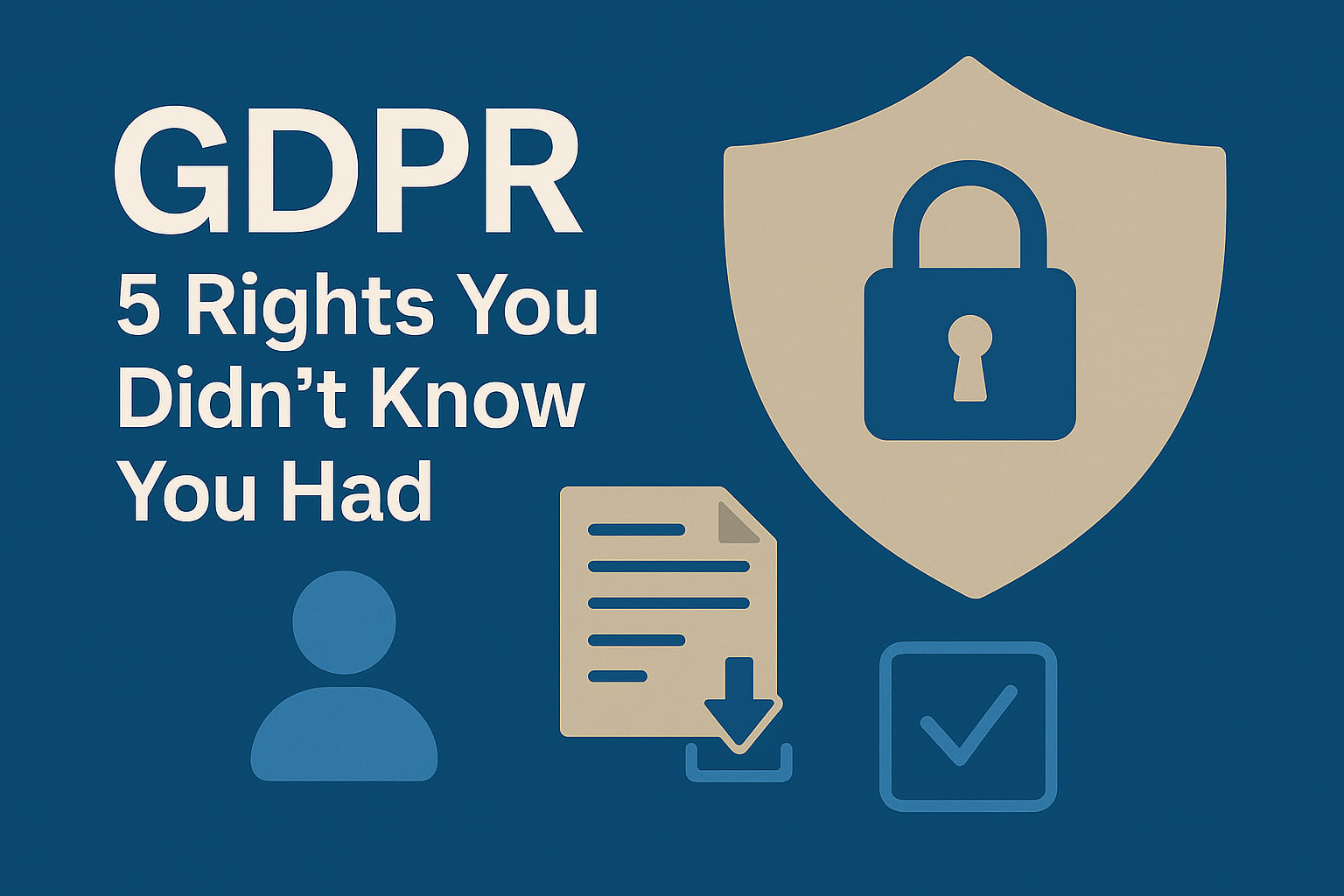The General Data Protection Regulation (GDPR) has become a common term, but beyond the buzzword, few people truly know what it means for them. Many believe that GDPR is just a formality for businesses. In reality, it's a European law that gives you powerful rights over your own personal data.
These rights are not always highlighted by big platforms. Did you know you have the power to control how companies collect, use, and share your information? Here are five fundamental rights you may not have known you had, and how to use them.
1. The Right to be Forgotten (or Right to Erasure)
This is one of the most publicized rights, yet also one of the most misunderstood. The Right to be Forgotten doesn't mean you can erase every trace of your past from the internet. However, it does allow you to ask a company to delete your personal data if it is no longer needed for the original purpose for which it was collected.
- What does this mean in practice? If you created an account on an e-commerce site years ago and no longer use it, you can request that your account data be deleted. Similarly, if you were mentioned in an online news article for an offense you have long since paid for, you can request the removal of the search link, under certain conditions.
2. The Right to Data Portability
Have you ever wanted to switch from one music streaming service or social network to another but were held back by the thought of losing all your playlists or contacts? The Right to Portability is for you. It allows you to retrieve your data in a structured, commonly used format to easily transfer it to another service.
- What does this mean in practice? You can ask your social media platform to provide you with a copy of all your photos, posts, and contacts. You can then use this file to migrate to a competing service without having to start from scratch. It's a right that encourages competition and gives you more freedom.
3. The Right to Object to Data Processing
This right gives you the power to say "no." It allows you to object to your personal data being processed for certain purposes. This is especially relevant for direct marketing, opinion polls, or profiling campaigns.
- What does this mean in practice? If you receive promotional emails from a company to which you have not given explicit consent for marketing, you have the right to object. A simple click on an unsubscribe link may suffice, but this right gives you the legal basis to go further if necessary. It is also very useful for objecting to profiling that could influence, for example, the job offers presented to you.
4. The Right to Restriction of Processing
Imagine you're disputing the accuracy of the data a company has about you. While the dispute is being resolved, the Right to Restriction allows you to freeze the use of that data.
- What does this mean in practice? If you discover a company has an outdated phone number or address for you, you can ask them to "restrict" the processing of that information. While the company verifies the correction, they are not allowed to use that data. This prevents incorrect information from being sold to other companies, for example.
5. The Right to be Notified in Case of a Data Breach
Data breaches are unfortunately common. But GDPR forces companies to be transparent when their security systems fail and your data is compromised.
- What does this mean in practice? If a company suffers a hack that puts your information at high risk, they are legally required to notify you without undue delay. This notification must explain the nature of the breach, the potential risks, and the steps they have taken to fix it. This right allows you to react quickly, for example, by changing your password, to protect yourself.
In conclusion, GDPR is much more than just a policy. It is a set of digital rights that give you real power over your online privacy. Knowing these rights exist is the first step to taking back control of your data. They are your shield in the digital world, and it's time to start using them.
